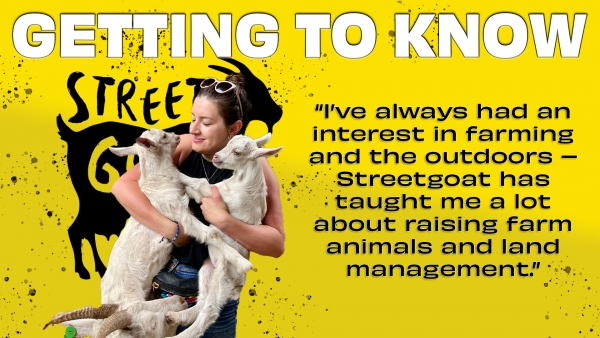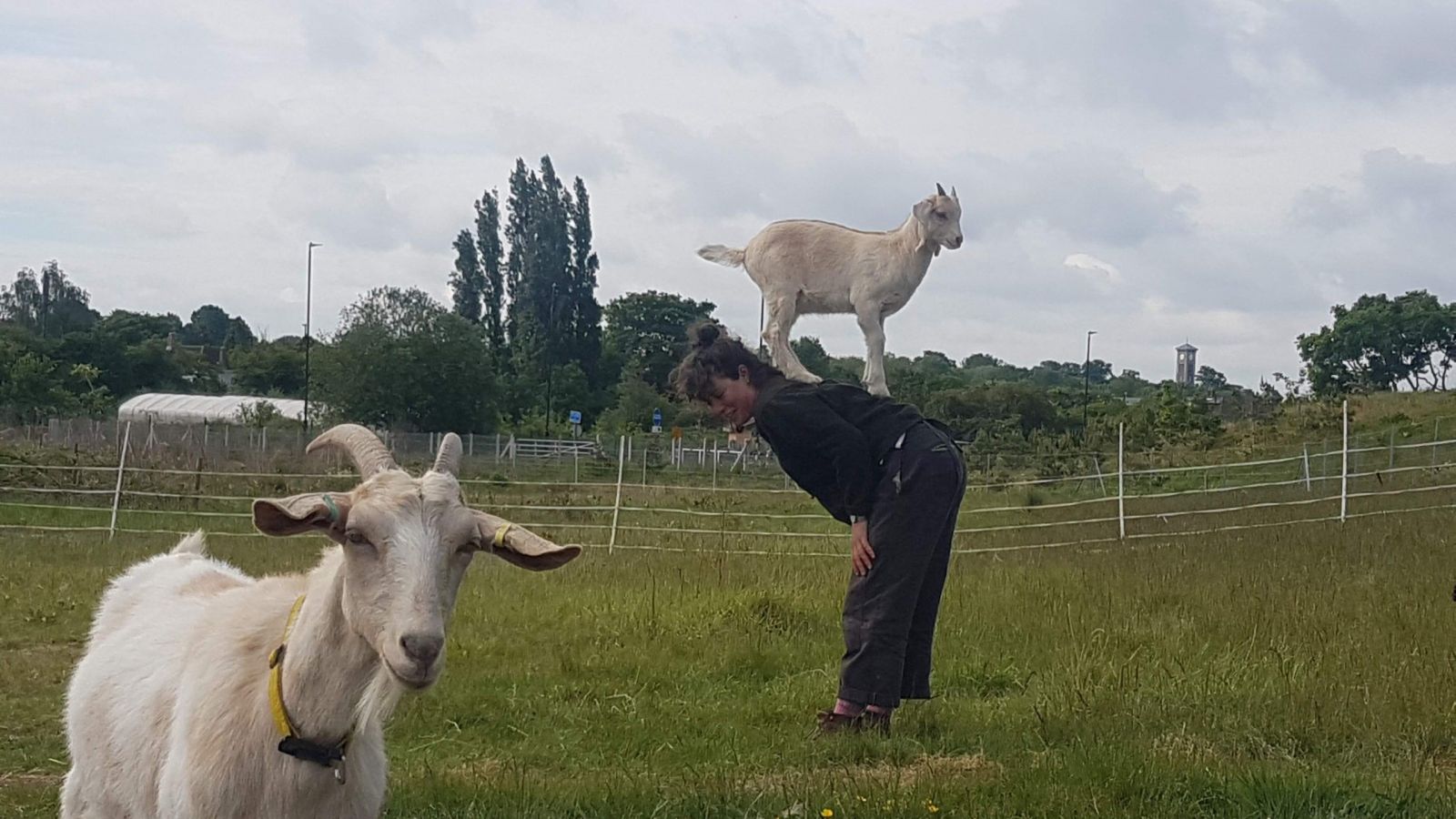
Getting to Know Street Goat with Hannah Clark
Posted on: 25 Mar 2024This week on Getting to Know, we spoke to Hannah Clark - a volunteer with the urban farming organisation Street Goat, who work to care for goats in the city, and using them to regenerate abandoned green spaces around the city. Hannah told us about the benefits of urban farming, how she feels about the meat production side - and how goat milk tastes!
Can you introduce us to Street Goat, and your role in it?
Street Goat is an urban farming project across Bristol where people living in urban areas can learn more about dairy farming. This helps the community, as the goats help to maintain overgrown land.
I’m a caretaker with occasional milking duties. A caretaker checks the health of the goat by looking at their hooves, eyes, hair and general demeanour. We clean and maintain their living space and ensure their hay is topped up.
We also look after the area surrounding where they live, for example: checking for fallen branches, make sure the fencing is secure etc.
Why did you get involved in Street Goat?
I got involved Christmas 2022 after I came across a call for volunteers to look after three kid goats at Royate Hill – and fell in love!
I live in a first floor flat in the city and have always lived in a built-up area unsuitable for animals. I’ve always had an interest in farming and the outdoors – Streetgoat has taught me a lot about raising farm animals and land management.
.jpg)
Do the goats have names? Do you have a favourite goat?
Yes, they all have names and very different personalities. Some of the girls are named after powerful women from the past, like Frida Kahlo, Dolly Parton etc. My favourite goat was Dora as she liked to think she was the boss...maybe I see a bit of myself in her!
How do you find goat's milk as opposed to cow’s milk?
Goat’s milk has a very distinct smell and taste – goaty. It’s very creamy and thick. I learned to pasteurise the milk at home!
Are you involved with the meat production side at all? How do you feel about it?
I’ve been involved in the sale of the goat meat to local people in the community. The thing to remember is that this is a farming project. Site rental, medicines, buckets, hay & straw are just some of the costs Street Goat needs to cover. The goats are not pets and as Street Goat is self-sustaining, funds need to be generated to ensure the project continues to run.

If you were Mayor of Bristol for a day, what would you do?
Firstly, I would invest money back into the youth of Bristol. After school clubs, youth centres and sports activities to support mid to late teens in addition to their education. Being a child at that age is hard with many options open to them so having more positive things to look forward to may help their direction of travel.
Also, travel: I know this is a big issue for many across the city. One accident in the centre and the city comes to a standstill. Our roads aren’t built for this many cars or for this number of people. Better train services, more regular buses...I would attempt to fix Bristol’s public transport so it runs efficiently.
You can find out more about Street Goat, including how to get involved, on their website.
Read more:
-
Getting to Know: Cloak with Sparky
-
Nature: There's a heartwarming kids Easter show happening next weekend
Article by:

Patrick is a filmmaker with so much Bristol in his blood the white blood cells are graffiti'd. Educated at the Northern Film School in Leeds, he’s returned home to be a Videographer and Reviewer for 365Bristol and BARBI. When he’s not messing about with cameras, he enjoys playing guitar, spending far too much time on tabletop RPGs, and being an awful snob about cider. Have a look at his work here, or get in touch at patrickb@365bristol.com.

